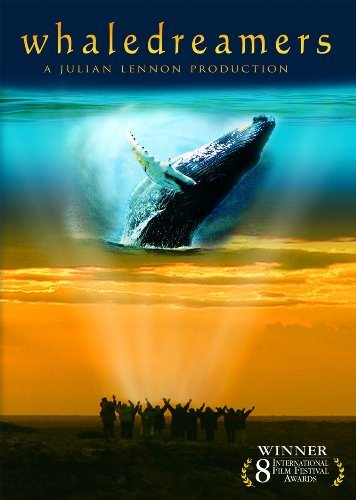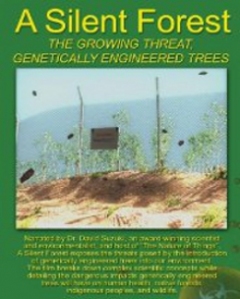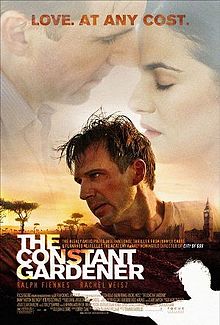- Details
- Hits: 5726
What connects a dispossessed aboriginal people to the son of music legend John Lennon? A powerful new documentary film made by British film maker Kim Kindersley that follows a gathering of indigenous tribal leaders to explore the profound relationship between whales, dolphins and humanity.
 Imagine how you would feel if your family home had been leased out to another family for ninety-nine years because the Government has made them homeless. This is the helpless and frustrating situation that the Mirning, an aboriginal people from South Australia have found themselves in. During the 1950s the British Government, with the compliance of Australian officials, made Maralinga (a rural outpost of South Australia) a nuclear test site. It is uninhabitable to this day because of high levels of radiation. The aborigines that survived the fallout were relocated by the Government to the traditional lands and coastal whale sites belonging to the Mirning, which has become a source of conflict between the two tribes.
Imagine how you would feel if your family home had been leased out to another family for ninety-nine years because the Government has made them homeless. This is the helpless and frustrating situation that the Mirning, an aboriginal people from South Australia have found themselves in. During the 1950s the British Government, with the compliance of Australian officials, made Maralinga (a rural outpost of South Australia) a nuclear test site. It is uninhabitable to this day because of high levels of radiation. The aborigines that survived the fallout were relocated by the Government to the traditional lands and coastal whale sites belonging to the Mirning, which has become a source of conflict between the two tribes.
InThe Gathering, the return of the Whale Dreamers, Bunna Lawrie, the Mirning’s song man explains that besides losing their land, the tribe is also struggling to re-connect with their sacred totem animal, the whale. A painful memory for the Mirning is the boats arriving in their coastal waters when they were opened to whaling. “It was like watching our children being killed,” Bunna says.
The film documents the genocide of indigenous aboriginal cultures through the eyes of the Mirning elders. Margaret Lawrie, describes the impact of “The Great Australian Silence” when the Europeans settlers arrived and the aborigines were herded into reservations and forced leave their cultures behind. Iris Bourgoyne, a radiant woman whose features defy her age remembers the “The Stolen Generation” as a time when zealous missionaries took aborigines into servitude. Iris implies that her own childhood experience of service was less than pleasant. She recalls the diseases brought in by the outsiders such as influenza, which killed many more aborigines.
- Details
- Hits: 4446
A DVD film that exposes the growing global threat of genetically modified trees and the startling impact of genetic engineering on biodiversity
GM is science gone wrong
 David Suzuki of David Suzuki Foundation is a geneticist who has enjoyed a twenty-five year career in science that includes heading the largest genetics laboratory in Canada. He agreed to narrate A Silent Forest because he is deeply concerned about the unseemly haste in applying ideas from genetic engineering to the real world. He believes that it is far too early to put genetically modified (GM) traits into medicines, and foods, or in our fields.
David Suzuki of David Suzuki Foundation is a geneticist who has enjoyed a twenty-five year career in science that includes heading the largest genetics laboratory in Canada. He agreed to narrate A Silent Forest because he is deeply concerned about the unseemly haste in applying ideas from genetic engineering to the real world. He believes that it is far too early to put genetically modified (GM) traits into medicines, and foods, or in our fields.
DNA taken from one species and inserted into another species, is horizontal gene transfer, and is the basis of genetic engineering. Suzuki is adamant that it is simply bad science for the pro-GM lobby to imply that horizontal gene transfer is the same process as the fundamental exchange of male and female genes, which is known as vertical inheritance.
“One gene, one protein, equals one trait”
This is the favoured theory used by genetic engineers to explain the process of artificial selection, and is, according to Suzuki, “a caricature of misrepresentation.” In nature, genes function within the context of an entire genome, and within a whole organism. (See Living with the Fluid Genome http://www.i-s.org.uk/fluidGenome.php )
- Details
- Hits: 4637
A beautiful film that borrows from Greek tragedy but just misses the mark.
HIV drugs pushed on the poor
 “Whose map is Britain using when it completely ignores the UN and decides to invade Iraq?” demands the feisty young activist Tessa, played by Cambridge educated actress Rachel Weisz, in the film The Constant Gardener.
“Whose map is Britain using when it completely ignores the UN and decides to invade Iraq?” demands the feisty young activist Tessa, played by Cambridge educated actress Rachel Weisz, in the film The Constant Gardener.
Her question is directed at mild-mannered British High Commission diplomat Justin Quayle, who is immediately seduced by her. They marry and take up residence in Kenya, where Tessa Quayle immerses herself in Kenyan culture with the resident aid agency doctor, Arnold Bluhm.
Together, they visit the shantytowns where she steps over piles of rubbish and sewage rotting in the streets, and he gives out the anti-HIV drug Nevirapine to pregnant women.
Nevirapine, they obviously don't know, has killed mothers and children in clinical trials in Uganda and the US. (See NIH-Sponsored AIDS drugs trials on Mothers and Babies www.i-sis.org.uk/NSADTMB.php) and Guinea Pig Kids in AIDS drugs trials www.i-sis.org.uk/GPKADT.php)








